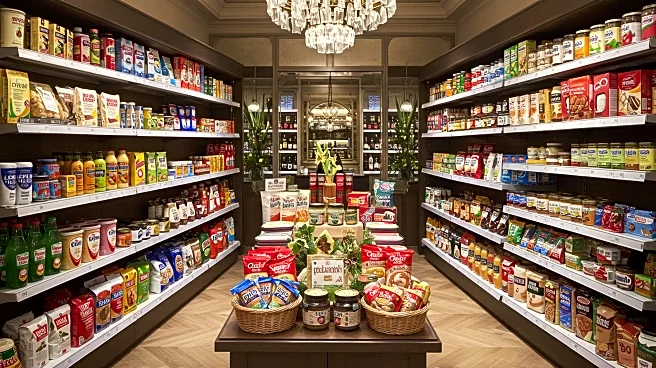What's Happening?
Private label brands in the US have experienced a notable growth surge, with dollar sales increasing by 4.4% and unit sales by 0.4% in the first half of the year, surpassing national brands. Private label market share reached all-time highs, with dollar market share at 21.2% and unit market share at 23.2%. This growth is driven by consumer perception of private label quality being equal to or better than national brands, as well as retailer trust and pricing flexibility. The pandemic and inflation have further accelerated the shift towards private label products, which are now seen as deliberate choices rather than compromises.
Why It's Important?
The rise of private label brands signifies a shift in consumer behavior and retail strategy, impacting national brands and grocery retailers. Private labels offer retailers higher margins and pricing control, making them a strategic pillar in retail operations. For consumers, the appeal lies in the perceived quality and value of private label products. This trend challenges national brands to innovate and differentiate themselves to maintain market share. The growing popularity of private labels could lead to increased competition and changes in the grocery retail landscape.
Beyond the Headlines
The success of private label brands reflects broader changes in consumer expectations and retail dynamics. The emphasis on quality and innovation in private labels challenges traditional perceptions and encourages retailers to invest in their own brands. This shift could lead to long-term changes in the grocery industry, with private labels becoming a dominant force. Additionally, the focus on sustainability and transparency in private label products aligns with consumer demand for ethical and responsible sourcing.









